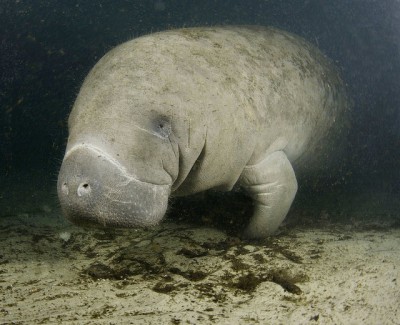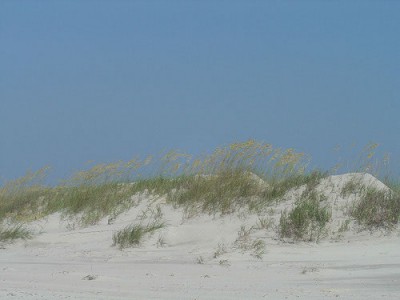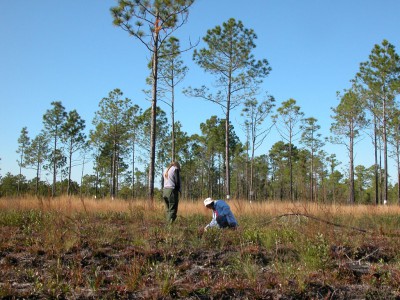RALEIGH — At about 1,000 pounds and 10 feet long, the West Indian manatee, its muzzle quilled with stiff whiskers, uses its paddle-shaped tail and short flippers to navigate the warm estuaries and river mouths along the N.C. coast.

However, it’s a privilege to spot a manatee. The marine mammal is endangered in North Carolina and throughout the United States.
Supporter Spotlight
Now the State Natural Heritage Program, charged with collecting data on the manatee and other rare species and habitats, is itself endangered.
As innocuous as the program seems—it neither makes nor enforces rules—it nonetheless has become a political target. For the second consecutive budget cycle, state lawmakers have slashed funding for the program, from $1.5 million in 2011-12 to $750,000 in 2013-14. This year, that figure appeared to be safe until a legislative conference committee unexpectedly cut the program’s budget further, to just $400,000.
“It was a big surprise to us,” says Misty Buchanan, the program’s natural heritage inventory director.
In the first go-round, six positions were cut; unless the program can find additional private funding, another five will be eliminated. That would leave just seven people to cover the entire state.

“A lot of folks depend on heritage data,” says Bill Holman, who served as secretary of Department of Environment and Natural Resources from 1999-2001. He is now state director of the nonprofit Conservation Fund. “Limited money means not having good scientific information. That could cause the state not to make good purchases.”
Supporter Spotlight
In 1985, N.C. lawmakers passed the Nature Preserves Act, which established the State Natural Heritage Program. For the past 30 years, private property owners, developers and conservation trusts have voluntarily requested the help of program scientists to assess the species and habitats on land. Counties use the data to write their open space plans. State agencies such as the Department of Transportation and private corporations like Duke Energy also have consulted the data to ensure their land purchases and projects comply with federal law.
Without this information, says Cassie Gavin, director of government affairs for the Sierra Club, “we lose natural treasures and we won’t know that we’ve lost them.”

In fact, the legislation itself expressed concerns that “continued population growth and land development in North Carolina have made it necessary and desirable that areas of natural significance be identified and preserved before they are destroyed.”
Short of overturning the law, legislators are starving the program through the funding cuts. No lawmaker has publicly claimed responsibility for the reductions. However, Rep. Roger West, a Republican representing the mountain counties of Clay, Cherokee, Macon and Graham, serves on two key committees that could have determined the program’s fate: He is a vice-chairman of House Appropriations and chairman of Appropriations on Agriculture and Natural and Economic Resources.
West, who runs an environmental excavation company, says that when revenue numbers changed, the appropriations committee had to make additional cuts to the Natural and Economic Resources budget, about $60 million to $70 million. He denies that the program was specifically targeted.

“Everybody was on the block,” West says. “They’ll have to tighten up and do the best they can.”
However, West says he has heard complaints about the heritage program from private landowners. One situation in question involved U.S. Fish and Wildlife Service’s access to an “inholding,” a privately owned parcel within the Pisgah National Forest. There was a disagreement between the service and the landowner over routing. The State Natural Heritage Program was caught in the crosshairs.
“I don’t approve of them going on private land,” West says.
But program scientists don’t trespass, says Buchanan. There is a common misperception that they go on private property uninvited. “We either ask permission or are asked to go onto the land,” she said.

The timber industry also can cross swords with scientists whose findings could thwart its work.
Friends of Forestry, a political action committee affiliated with the N.C. Forest Association, contributed $500 to each of seven members of the House committee on natural resources, including West. The PAC also spread its largesse to several members of the Senate counterpart.
Calls to Chris Brown, communications director for the N.C. Forest Association, were not returned.
“The timber interests don’t want anything getting in the way of the saw blade,” says biologist John Taggart. Until September, he served on the heritage program’s advisory committee.
“These cuts impinge on the ability of the staff to oversee the protection of species that need help.”
The nine-member advisory committee itself appears to have been politicized. Although it reviews and recommends parcels for protection, its guidance is non-binding. However, the committee did not meet for nearly two years, since December 2013. That resulted in a significant backlog of proposals to review.
“I started asking questions about the meetings,” Taggart says. “They said they wanted to review the composition of committee. But when someone wants nothing to happen, it won’t happen.”
In fact, the committee did meet last week, on Sept. 29, but no one told Taggart or his fellow committee member Lynn Maguire, a Duke University professor at the Nicholas School of the Environment. They had not been reappointed to the advisory committee, but found out only when Coastal Review informed them.

Scott Pohlman is the heritage program’s Conservation Incentives Program director. He says the governor’s office appointed six new commission members. Of the nine members, only one, Alan Weakley of the UNC Herbarium, was reappointed. However, he lost his chairmanship.
Three vacancies remain, and it’s unclear when they will be filled and with whom.
In addition to Weakley, the new appointments include four people from land trusts and conservancy organization. The other member is Tony Doster, who sits on the board of directors of the N.C. Forestry Association. He is also the manager of the N.C. region for Resource Management Service, a private timberland investment firm based in Alabama. The company made news in 2013 and 2014 when it and another private investment group offered to buy Hofmann Forest from N.C. State University for $130 million. Several faculty members and environmental groups sued the university over permitting issues; in the meantime, the deal fell through.
As part of state government reorganization, the heritage program has moved from the newly named Department of Environmental Quality to the Department of Cultural and Natural Resources. “They have been very supportive of our mission,” Buchanan says.
The cuts have come as demand for the heritage program services have increased, Buchanan says. Commercial and residential developers, and energy companies exploring for natural gas, for example, need the program’s data. But with fewer people in the field, it will take longer to collect the data, and there will be less of it.
“Conditions on the ground change,” Buchanan says. “We have to verify and sometimes correct the data. The work will never be done.”
Meanwhile, she is trying to close the funding gap through several grants from the Sustainable Forestry Initiative, the National Fish and Wildlife Foundation and NatureServ, the umbrella organization for all of the states’ natural heritage programs.
Buchanan says she hopes that in the next short session, lawmakers will reinstate the funding.
“We will help people understand how business and industry uses our data,” she says. “Maybe they’ll give us another chance.”







